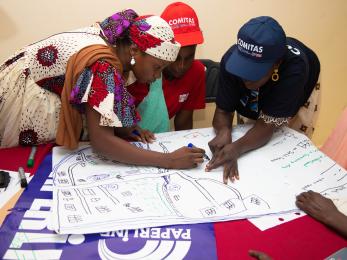Strategic Resilience Assessment in Mongolia

Mongolia’s recent development trajectory has suffered from a range of interconnected shocks and stresses, shaped by conditions in the social, governance, economic and ecological systems.
The overreliance of the economy on the mining sector, and underinvestment in the country’s aging herding system have made Mongolians vulnerable to commodity price shocks, and rising unemployment and underemployment rates. These same conditions, combined with a poorly understood and weakly applied land law, have contributed to a rapid rise in livestock numbers and resulting rangeland degradation, conditions that create a negatively reinforcing downward spiral.
Increasingly unfavorable conditions in rural areas have driven unsustainable rates of urban migration to the capital Ulaanbaatar. Unfortunately, many of those transitioning out of the herding system have found few viable alternatives in cities. The large demographic of 15-29 year olds who come to the capital for better education are unable to find jobs after graduation. Many urban migrants are forced to reside on the outskirts of the city in ger districts, where poor service delivery contributes to pollution, health problems, as well as high rates of alcoholism and gender-based violence.
In 2016, as part of the start-up of its Resilient Communities Program, and in collaboration with partners, donors and citizen groups, Mercy Corps conducted a Strategic Resilience Assessment (STRESS) focusing on Mongolia’s herding communities and rapidly urbanizing areas. The goal of the assessment was to develop a long-term strategy for supporting sustained, inclusive growth in Mongolia using a resilience approach. The STRESS process helped to examine connections among social, ecological and economic systems, and how these impacted households’ and communities’ well-being in the face of shocks and stresses as well as identified what combination of resilience capacities are most needed in Mongolia to successfully manage risks into the future.


